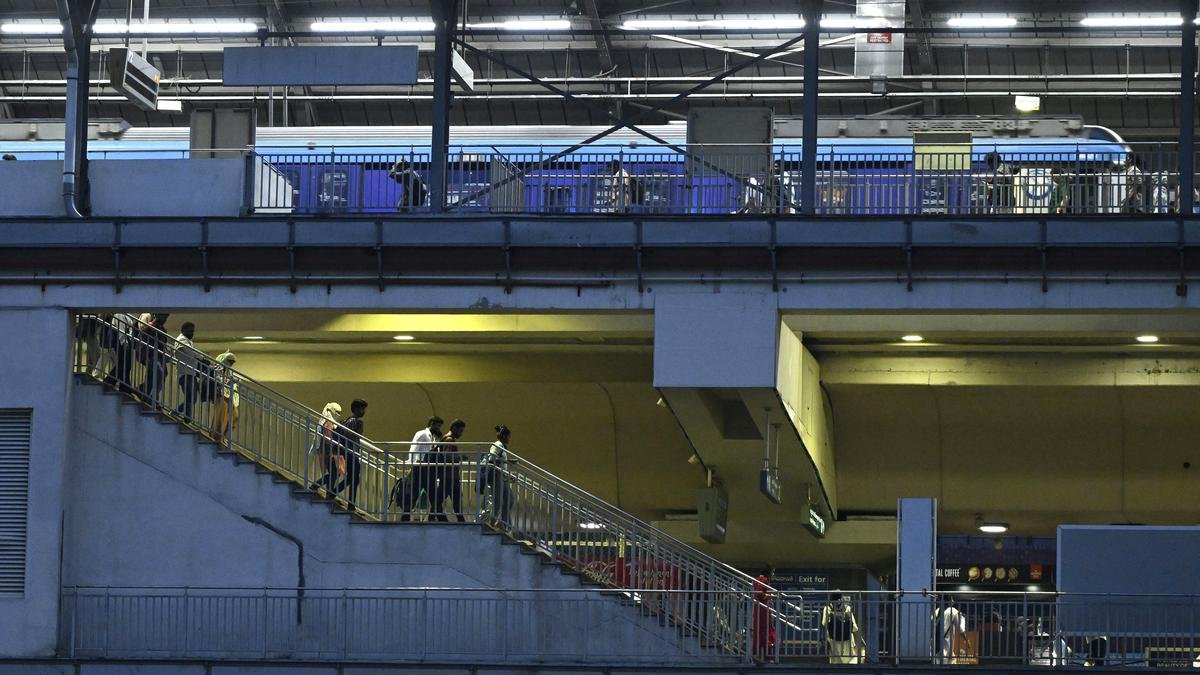A recent decision by L&T Metro Rail Hyderabad Limited (L&TMRH) to increase the ticket fares of the Hyderabad Metro Rail has triggered discontent within the Telangana Government. The fare revision, which came into effect this week, has drawn criticism from both government officials and daily commuters. With inflation already affecting everyday expenses, this fare hike has added to the burden of the common man.
Details of the Fare Hike
L&TMRH announced a fare increase of ₹5–₹10 across different slab rates, citing operational costs, rising electricity prices, and maintenance expenses as the reasons. The minimum fare has been increased from ₹10 to ₹15, and the maximum fare has been raised from ₹60 to ₹70, depending on the distance traveled.
The company claims the hike is in accordance with the Metro Rail Concession Agreement, which allows periodic revisions. It is the first fare revision since the Metro was launched in 2017, and L&TMRH maintains that the increase is necessary to sustain operations.
Telangana Government’s Reaction
The Telangana Government has strongly objected to the fare hike. State officials argue that the fare hike was imposed without prior consultation and is not in line with the public interest. Transport Minister Ponnam Prabhakar expressed disappointment, stating that the metro should remain an affordable public transport option, especially for working-class citizens and students.
The government has hinted at reviewing its agreement with L&TMRH and may summon the private operator for further clarification. “Any revision affecting lakhs of commuters must be discussed with the government beforehand,” a senior official said.
Public Backlash and Commuter Concerns
The fare hike has triggered a wave of criticism from the general public. Commuters have taken to social media platforms like Twitter and Facebook to express their anger, with hashtags like #MetroFareHike and #HyderabadMetro trending locally.
Many commuters who rely on the Metro daily have stated that the increase will strain their monthly budgets. Students and low-income workers have been particularly vocal, calling for either a rollback or concessional passes for frequent travelers.
A daily passenger from Ameerpet to Raidurg said, “I already spend around ₹1,500 a month on metro tickets. This hike means I’ll now have to budget even more. It’s becoming unaffordable.”
L&TMRH’s Justification
In response to the backlash, L&TMRH issued a statement defending the fare hike. The company explained that operational costs have increased substantially over the past few years. The COVID-19 pandemic further impacted revenues, causing financial stress.
L&TMRH stated, “We have tried to absorb the financial pressures for years without raising ticket prices. This revision is essential to maintain and improve service standards. We continue to offer smart card discounts and encourage bulk purchase plans.”
The operator also assured that it is committed to enhancing the metro experience with improved facilities, frequency, and safety measures.
Political Angle and Opposition Criticism
The fare hike has also taken a political turn. Opposition parties have slammed the ruling government, accusing it of failing to control private operators and safeguard public interest. The BJP and Congress in Telangana have demanded that the fare hike be withdrawn immediately.
Some opposition leaders have even staged protests at metro stations, demanding government intervention and a rollback of the fare revision.
Experts Weigh In
Urban transport experts believe that fare hikes are inevitable for large-scale transit systems, but must be carefully timed and justified. According to transport economist Dr. Sridhar Reddy, “Public transport must strike a balance between affordability and sustainability. A transparent dialogue between the government, operator, and commuters is crucial before implementing such decisions.”
Experts also pointed out that last-mile connectivity and affordability are key to metro rail success. High fares may discourage ridership, leading to reduced revenue in the long term.
Way Forward
The Telangana Government is reportedly planning to initiate discussions with L&TMRH to explore alternatives, such as tiered pricing, concessional passes for students, and enhanced multi-modal connectivity. The government has not ruled out taking legal or administrative steps if a mutual agreement cannot be reached.
Conclusion
The Hyderabad Metro Rail fare hike has ignited a multifaceted debate involving economic sustainability, public welfare, and government oversight. While L&TMRH argues that the hike is necessary for operational survival, the Telangana Government and the public demand greater transparency and affordability.
As both sides prepare for deliberations, lakhs of commuters are hoping for a solution that balances cost-efficiency with accessibility, ensuring that metro rail remains a viable transport option for the city of Hyderabad.







